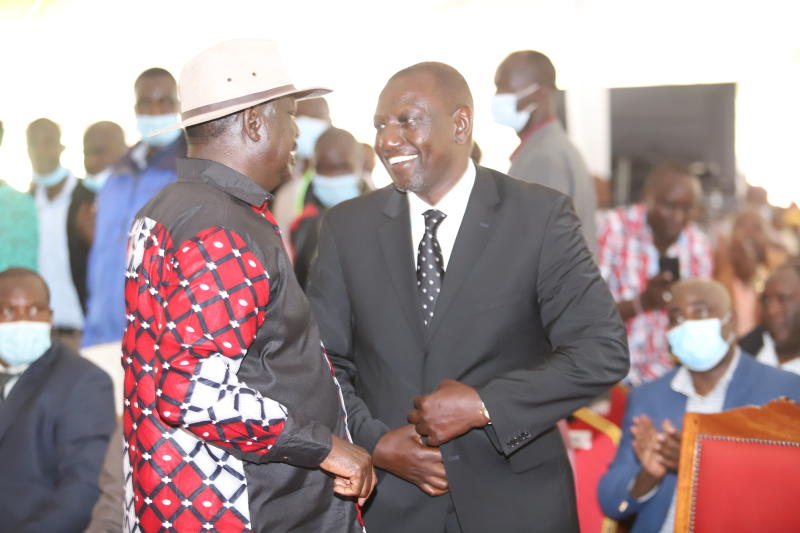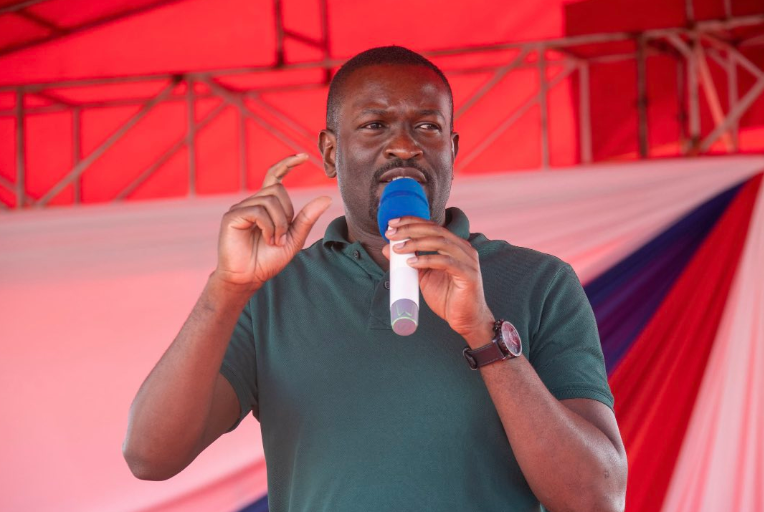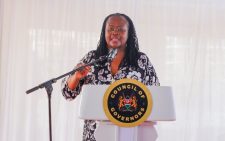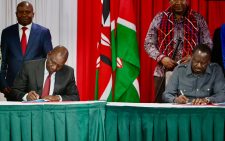Public interest should be at centre of Ruto, Raila talks

There is a glimmer of hope. The river of dialogue that was turning into a lifeless trickle is soon going to flow.
It seems the political class will soon discourse on the plight of Kenyans and help them cross the proverbial river, to study “war” no more.
In political engagements that bring erstwhile political enemies on the table, there must be a people’s component. Hopefully, public interest will be in perspective and at the centre of any talks.
You see, politicians all over the world, especially those with huge political clout, trudge this thin line between public interest and their own ambitions, nay, selfish interest.
No politician with a significant clout can say they don’t have personal, sometimes selfish ambitions. It is the hallmark of political self-actualisation. Don’t blame the players, it is the game.
Granted, politics is about distribution of resources in society. The fact that a politician wants to serve the people means he or she must have the ambition to seize power at a personal level.
This quest to have that power almost always gets fire in the belly of politicians because it is that power that affords them the luxury of doing that which will help them serve the interest of the public.
It is probably that ambition that pushed President William Ruto to fight against all odds to become the fifth. As the DP of the fourth, he had power but certainly not enough to serve the interest of the public as he deemed it fit.
It is after a politician gets power that then political scientists can tell whether the ambition to get power was for public good or self-aggrandisement.
Dialogue, in whatever form, must therefore have a pro-people agenda in it and should largely be driven by the wishes and aspirations of the people.
The extent to which the regime as the big brother will allow the people component to get the lion’s share of the outcome of the dialogue will say a lot about their winning and whether this win was for the hustlers or took advantage of them.
The same is true of Azimio. We expect this to be about the people and to bring to an end the post-election acrimony, lamentation and feelings of injustice by the losing side and bravado by the winning side.
Bondo MP Gideon Ochanda recently made a profound statement during Interior PS’ Raymond Omollo’s homecoming ceremony. He reiterated what most Kenyans want by asking the President to ensure the electoral injustice issues are dealt with once and for all.
He brought it like an intelligent politician that he is by having a dig at both sides of the political divide. But what he said without uttering the words is the plain truth that for us to avoid a situation where a loser of a presidential election comes with VAR results six months after the elections. We need a critical component which is akin to a way of opening the much-touted server.
Today, the contestations about the last elections are real because the fears of malpractices have not been allayed and neither have they been addressed.
Over the years we have talked of electoral justice but not much has been done to get us there. A free, fair and transparent election does not necessarily amount to a just election.
We need an electoral system that is free, fair, transparent and verifiable with clarity on who and how the process can be verified. It is only such a foolproof process that can guarantee less trouble after the elections and a leadership that will serve the electorate.
When the leadership knows that the electoral system is just and the only way to power is through the vote, then the winners of an election will have to focus more on public interest.
If this dialogue is to address the plight of the people in both the immediate and in long term, both parties must strive to address the high cost of living today and electoral justice to save us the perpetuity of contested elections.











